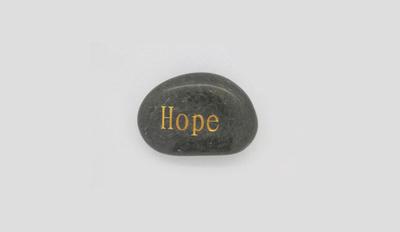Posts by Dr. Karen Finn
3 Signs Your Ex Is An Emotional Bully (And How To Handle It)
Feeling beat up every time you talk to your ex? Don’t let them get to you anymore.
Do you feel drained after every conversation, text, or email with your ex? If so, you might be dealing with an emotional bully.
For most of us, divorce is already a very emotionally difficult time. We’re grieving the losses and loneliness. We’re afraid we’re not good enough and we even wonder if anyone will ever really love us.
Brené Brown says that the twin fears of ‘not being good enough’ and ‘fear of disconnection’ are at the root of shame. Leveraging these natural shame-based fears against us during divorce is exactly the tactic emotional bullies use.
Emotional bullies manipulate through shame and blame. They’re masters of creating even more misery during a time when we’re already vulnerable.
So, how do you know if your ex is an emotional bully? Here are three of their tactics (and how to deal with them):
- Nothing you do is ever good enough. Your ex makes statements like “… and you say you put the kids first,” “you should be ashamed of yourself,” and, “you never were any good at ____.” To deal with this type of bullying, you must do two things. First, remember you are always doing your best no matter what your ex thinks or says. Second, you can respond with either silence or you might say something like, “Interesting perspective, but I disagree,” and then (this is the hard part) leave it at that.
- They throw a fit when you don’t do exactly what they want, when/how they want you to do it. In this case, your ex is bullying you by using your fear of disconnection. I know this may sound weird, but if their fit throwing bothers you, then you actually do care what they think of you, and on some level you want connection with them. Dealing with this type of behavior requires that you accept that the divorce disconnected the two of you. It’s time to establish some healthy boundaries for yourself.
- Your ex acts like Dr. Jekyll and Mr. Hyde. You do one little thing they don’t agree with and they have a meltdown that’s completely out of proportion with the situation. But when you offer them any type of praise, they relax with happiness or visible satisfaction. This behavior exposes an emotional bully’s Achilles heel—They also have huge fears about feeling disconnected and not good enough. (Yup, deep down they harbor the same fears they’re preying upon. How ironic.) In fact, they probably feel inferior to you. Knowing this, you can use appropriate praise to defuse potential blow-ups.
Of course, these tips seem easy to implement when you’re in a peaceful place reading them. But, I know that when you’re facing a bully, acting rationally isn’t always what happens. Most of us want to defend ourselves (or flee). Unfortunately, all both do is escalate or enable the situation.
The best long-term defense against an emotional bully is to bolster your self-esteem. The better you feel about yourself the less their behavior impacts you.
Feeling good about yourself means you won’t easily fall for your ex’s tactics of shame and blame, taking their bullying power away. If they can’t bully you, they’ll need to interact with you differently. Hopefully, that will (eventually) include respect.
I’m Dr. Karen Finn, a divorce coach and advisor helping people just like you who are dealing with the stress and pain of divorce. You can join my newsletter list for free weekly advice. If you’re ready to take the first step toward working with me as your personal coach, you can schedule an introductory private coaching session.
This article originally appeared on YourTango.
Feeling Heartbroken? 3 Ways to FINALLY Get Over Your Ex
Drowning your sorrows in Häagen-Dazs and Kleenex isn’t the only way to get over your ex.
Feeling heartbroken over the loss of a relationship colors the whole world a shade of gloomy gray. Misery and grief are all you can recognize. And although this is normal, it sure doesn’t feel that way. Most of us want to get over heartbreak as quickly as possible.
The key to getting through the gloomy, tear-stained grayness of your heartbroken existence is to go through it, to feel what you’re feeling, and to see your ex differently. Yeah, I know it’s much easier for me to say that than it is to do, so here are 3 steps you can take (and why you should take them) to get over your ex.
- Talk about your feelings; express yourself. The Huffington Post recently reported on some research Grace Larson did at Northwestern University. It turns out that it’s a good idea to talk about your ex.Specifically, she found that people who talked in an interview setting about their emotions made more progress than those who didn’t. It’s important to note that this talking wasn’t focused on problem-solving or blaming, but on perspectives. They would discuss things like when they first realized their relationship was going south and how the whole thing affected their views on romance.
- Accept that your ex isn’t the person you fell in love with. Life has a way of changing people over time. Maybe he didn’t change at all, but is just finally showing you who he really is. The person he has hidden from you. Either way, he’s not the same.It’s just a bit easier to let go of someone when you realize they’re not really who you fell in love with.
- Forgive your ex. OK, yeah, I know, this isn’t exactly what you want to hear, but there’s some pretty good research to indicate that this is one of the most important things you can do.
The Atlantic’s Olga Kazan wrote a piece called The Forgiveness Boost. The article suggests that making amends with those who trespass against us can yield both physical and mental benefits. For example, forgiveness can…
- reduce one’s depression and anxiety levels
- reduce negative emotions and stress
- reduce negative physical symptoms associated with stress
- reduce the number of medications used
- improve sleep quality
But just HOW do you forgive someone? In the same article, Everett Worthington, a professor of psychology at Virginia Commonwealth University, suggests a 5-step process called “REACH” — Recall, Empathize, Altruistic Gift, Commit, Hold.
- The first step is to recall your breakup including all of the emotions that go along with it.
- The next is to empathize with your ex which is usually accomplished by realizing that they’re a fallible human being.
- Then, you decide that you will forgive them and give them this altruistic gift of forgiveness.
- After you make your decision, you commit to it by telling someone what you’ve decided.
- Finally, you hold onto forgiveness by reminding yourself that you’ve forgiven them every time your feelings of hurt and anger resurface.
Most people approach heartbreak with a box of tissues and a gallon of ice cream. But, if you’ll give these three steps a try too, you’ll heal your broken heart much more quickly.
I’m Dr. Karen Finn, a divorce coach and advisor helping people just like you who are dealing with the stress and pain of divorce. You can join my newsletter list for free weekly advice. And if you’re interested in taking the first step toward working with me, you can schedule an introductory private coaching session.
There’s No Finish Line For Divorce Recovery
The path to move on from divorce and divorce recovery isn’t straight and narrow.
(NOTE: This article is a classic and was written in 2015. As a result, the dates and years passed are not accurate today. Enjoy!)
I recently got a new computer. And if you’ve ever had to transfer files from one computer to another, you know that it can be kind of fun to take a peek at what has been hogging up space on your hard drive.
Well, on my expedition through all of my files, I found emails in my inbox that were more than ten years old! Some of these ancient notes even had details about the negotiations my ex and I went through to settle our divorce in 2002. Not really anything I need to have hanging around any more, right?
Believe it or not, I paused before hitting delete and trashing all of that ancient correspondence. I was flooded with a variety of thoughts and questions. “Those emails were part of my personal history,” I thought to myself. They were part of what defined me — back then. “Would I be throwing away a piece of myself if I deleted those emails? Would I be disrespectful of that old relationship?”
Yes, ten whole years after my divorce was complete, seeing those emails brought up some of the turmoil that I went through when I got divorced. It was fleeting, but it was absolutely there.
Does this sound familiar? Most people believe that that once the divorce decree is signed, that should be the end of it. Most people also think that once you’ve moved on, things will never pop up again to remind you of the huge transition that your divorce was in your life. That’d be nice, but the truth is that your divorce will always be a part of your personal history. Even after you finish the bulk of your transition from married to single, there will be events, people and things that remind you of both the unpleasant and pleasant parts of your divorce. It’s okay and it’s normal. As you get more and more involved in living your life for you, the impact your divorce has will diminish to barely a blip on your radar.
How do I know? Because more than ten years after my divorce was finalized, when I found those emails detailing the negotiations about our division of property, I paused. But I paused for only a moment before I hit delete and felt really good about my current life. And you know the best part? I wouldn’t be here today without having gone through what I went through back then.
Your Functional Divorce Assignment:
What are you holding on to that you might be ready to let go? Consider the things, thoughts, and ideas that you’re holding on to currently. The ones that bring you the most pain might just be the ones that you consider letting go of.
What might be the consequences of letting them go? Thinking about the repercussions of letting these things go, you’ll discover both positive and negative possibilities. Get them all out so you can really see what the cost of letting them go might be. Sometimes the consequences of letting them go are really wonderfully positive.
I’m Dr. Karen Finn, a divorce and personal life coach helping people just like you who are dealing with the stress and pain of divorce. You can join my newsletter list for free weekly advice. And, if you’re ready, you can take the first step toward working with me as your personal coach by scheduling a private consultation.
In the Depths of Divorce Despair? Here’s How to Find Hope
Simple ideas for finding the hope you need.
When you’re in the depths of divorce despair and you’re wondering whether or not you can stand the pain for one more second, you need to find hope. You need to find hope that you will stop hurting so much. And, you need to find hope that you can be happy again.
Some people find hope through prayer and their belief in something larger than themselves. They can find comfort in their faith. They know that no matter how alone they are feeling in any instant, they’re never truly alone.
But not everyone has this kind of faith and some find their faith faltering in the face of their grief.
How else can you find the hope you need to heal from your divorce?
You might find hope by spending time outdoors and connecting with nature. You might find hope by enjoying your children. You might find hope by playing with or cuddling your pet. You might find hope by talking with someone who understands the pain of divorce because they’ve been through it and survived to create a happier life for themselves. You might even find hope by reading inspirational quotes.
When I went through my divorce, I found my hope through all of these ways. I prayed, spent time outside, enjoyed the company of my young niece, played and cuddled with my pets, spoke with a therapist who had been there and wasn’t any more, and I read inspirational quotes.
Going on the hunt for inspirational quotes when you’re feeling depressed isn’t easy or fun. So, to help you out, here are my favorite quotes for moving past divorce despair.
- Your present circumstances don’t determine where you can go; they merely determine where you start. ~Nido Qubein
- “I will release the old, embrace the new and grow a vision of hope” ~Shiv Adhikari
- If you are going through hell, keep going. –Winston Churchill
- “You don’t always need a plan. Sometimes you just need to breathe, trust, let go and see what happens.” – Mandy Hale
- Grief is an emotional, spiritual, and psychological journey to healing. ~E. Kubler-Ross, D. Kessler
- Perhaps this is a sacred passage in which my insecurity is sacrificed for trust in whatever is to come. ~Noela N. Evans
- It is by going down in2 the abyss that we recover the treasures of life. Where u stumble, there lies ur treasure. ~Joseph Campbell
- Every adversity, every failure and every heartache carries with it the Seed of an equivalent or greater Benefit. ~Napoleon Hill
- I think that when everything goes wrong, it’s because nothing was right in the first place. ~Lani Diane Rich
- The truth is that pain is one of our greatest teachers… ~Daphne Rose Kingma
- Where there’s life, there’s hope. Cicero
- Grief is a time when we try to find our wholeness again after all has been lost. ~E. Kubler-Ross, D. Kessler #quote
- The human spirit is virtually indestructible, and its ability to rise from the ashes remains as long as the body draws breath. ~Alice Miller
- I can courageously handle anything as long as I take it one moment at a time. ~Sue Patton Theole
- What does not kill me makes me stronger. ~Neitzsche
- This too shall pass. ~Proverb
Maybe one of the ideas in this piece will help you find hope or maybe this piece will inspire you to find hope in another way. Regardless, finding hope is how you’ll make it through the most painful part of your divorce recovery journey and on to happiness again.
I’m Dr. Karen Finn, a divorce coach and advisor helping people just like you who are dealing with the stress and pain of divorce. You can join my newsletter list for free weekly advice. And if you’re interested in taking the first step toward working with me, you can schedule an introductory private coaching session.
If you’re looking for more help about how to find hope after divorce, read more articles in Dealing With Grief.
Want A Happy Blended Family? 5 Rules Stepparents MUST Follow
Love and respect is earned from a child, not demanded.
If you’re thinking of marrying someone with kids, or if you’ve got kids and you’re getting married, your kids are going to gain a stepparent. Blended families are challenging and cause stress on your marriage.
However, here are five rules for being a stepparent that help improve harmony in both your marriage and your blended family:
1. A stepparent is NOT the parent. A stepparent is a “bonus” parent in a child’s life. As a bonus parent, giving gifts in an effort to buy a child’s affection will not gain the status of new best friend. Your role is as another safe adult for the child to interact with. Your job is to model healthy life perspectives that complement those of their biological parents.
2. A stepparent co-creates the rules for their house with their spouse (the child’s parent). By co-creating the rules and supporting each other in their enforcement, you avoid becoming the evil stepparent. You’ll also create a home that you and your spouse will enjoy.
3. You can—and should—expect respect from the child, and show respect as well. As in any relationship, there will be times of struggle in the stepparent/stepchild relationship. Mutual respect is at the base of the best relationships. A stepparent/stepchild relationship needs mutual respect, too; but the onus for initial respect is on YOU. By respecting the child as an individual with likes, dislikes, opinions, emotions and a need to have alone time with each of their biological parents, you’ll model and teach a respect which might (if you’re lucky) grow into mutual love over time.
4. Show respect to their other parent. Never, EVER, speak poorly of the child’s other parent with even the slightest possibility of the child overhearing. Never allow anyone else (including your spouse) to speak poorly of the child’s other parent, either. Children love both of their parents. Part of your job is to encourage this love, regardless of your personal feelings. Kids also know they’re like both of their parents; if they hear you disparaging their other parent, they’ll see it as an attack on that parent, as well as an attack on them.
5. Your role is to give support, not direction (unless explicitly requested) to the biological parents. No matter how much you grow to love your stepchild, you will never know the full love and corresponding responsibility of being their biological parent. The biological parents are the ultimate rule-makers for the child. Your job is to support your spouse in helping to raise the child into a happy, healthy, contributing adult.
Honestly, these five rules for stepparenting are just the tip of the iceberg. Being a stepparent is a challenge, but has potential for tremendous rewards. By following these rules, you’ll have a solid foundation for navigating the challenges, so you can reap the rewards—a harmonious blended family AND a happy marriage.
I’m Dr. Karen Finn, a divorce coach and advisor helping people just like you who are dealing with the stress and pain of divorce. You can join my newsletter list for free weekly advice. If you’re interested in taking the first step toward working with me, you can schedule an introductory private coaching session.
This article originally appeared on YourTango.
What Makes Grief After Divorce So Hard?
The surprising reason is happiness.
A divorce can feel like a tornado has come through and wiped from the face of the earth everything you thought your life was. You’re walking around in a state of shock trying to make sense of what has happened. And you’re just not finding much of anything to rebuild your life upon. The grief can simply be overwhelming.
Why is it like this? Why do divorces hurt so much?
As odd as it may sound, we experience such profound grief after divorce because of our search for happiness. The search for happiness is in our DNA. It’s one of our primal drives. We’ll find temporary highs of happiness through movies, TV shows, thrills, adventure vacations, and even songs. But none of these totally satisfy our drive. The real path to happiness is both much simpler and more complex than that.
Relationships — profoundly meaningful relationships — according to a 2012 AARP Survey, are a key enabler for happiness. Seligman, the author of Flourish, further states that positive relationships are not only key to happiness, but well-being in general. And yet different types of relationships provide us with different types of happiness. Obviously, this begs the questions: What are the most meaningful and powerful relationships of all? Which ones have the potential for providing us the greatest happiness?
Although our family and friends can provide us with a sense of belonging and happiness, they do not provide us with our greatest happiness. There is a more meaningful and profound relationship. The holy grail of happiness is our intimate relationship — our relationship with our significant other. At a gut level, we all know this is true. This innate knowledge leads us to hope that once we’ve found “the one,” we’re set. We’ve got exactly the relationship we need for happiness to flourish for the rest of our lives. We believe that somehow now all of our troubles are over too.
Unfortunately, not all intimate relationships last a lifetime. And when they end, we’re grief-stricken and often inconsolable. We find ourselves falling from bliss into hell on Earth. We feel lost, alone, and unlovable. We can also feel angry, betrayed and a myriad of other emotions as we deal with the grief and stress of losing what we thought was our key to sustained happiness and well-being.
We’re struggling not only with the loss of our partner, but our grief causes us to ask deeper questions: Who am I — really? Can I ever be happy again? Could anyone truly love me in a deeply meaningful and profound way? This is why the grief of a breakup is so difficult. It’s not just the loss of love and the other, but the loss of who we thought we were and our dream of ultimate happiness.
I’m Dr. Karen Finn, a divorce coach and advisor helping people just like you who are dealing with the stress and pain of divorce. You can join my newsletter list for free weekly advice. And if you’re interested in taking the first step toward working with me, you can schedule an introductory private coaching session.
This article was originally published on YourTango.
Is Marriage Good for Your Health? Maybe. Maybe Not.
The article “Why marriage can be good for your health” doesn’t even begin to tell the whole story.
TimesOnline recently published an article “Why marriage can be good for your health”. After reading the article, I believe the conclusions they reach and the research they cite may not tell the whole story.
The article looked at a 2006 study that found married people tend to have longer lives than people who are widowed, divorced/separated or have never been married. What’s most interesting to me about this statement is that there is also research that disputes this fact for women.
In 2010, the Max Planck Institute for Demographic Research released a press release about a study they did which explicitly states “The downside of marriage for women: the greater a wife’s age gap from her husband, the lower her life expectancy.”
Safety is another reason the TimesOnline gives for marriage being good for your health. I agree that being in a committed, monogamous relationship will decrease your chances of contracting a disease through intimate encounters, but there are plenty of people I work with who believed they were in a committed, monogamous relationship who find out their spouse has cheated on them. Marriage in and of itself doesn’t guarantee a decreased chance of contracting a disease through intimate encounters.
Another aspect of the safety the article claims marriage provides is based on research by the United States Justice Department. It turns out that married people are less likely to be victims of violent crime than single people. This statement brings up a couple of questions for me. What is the age-range of individuals looked at? How do mental health and financial status play into this data? It just seems incomplete. Finally, there’s a subtle suggestion that people who are married don’t go out as much as people who are single. Really? This suggestion reminds me of the data that came out in the 80’s that stated most serious car accidents occur within 5 miles of home. The reason for that is that most of us do most of our driving within a 5 mile radius of our home. If you don’t go out, you don’t interact with society. If you don’t interact with society then there’s less chance of you becoming a victim of a crime. Are you willing to stay at home all the time instead of going out for a great meal, going dancing, or even out to an art opening? I’m not and I’m married!
The last piece of this article that really frustrates me is the statement that marriage “improves mental health”. Just being married cannot improve your mental health. How many people do you know that are miserable in their marriage? How many people have you heard of who have been abused by their spouse? Do you really believe that they have great mental health? Yeah, me neither.
This article really misses a two key points. Frist, Marriage can only improve your health if it’s a healthy marriage. A healthy marriage doesn’t just happen when you say “I do”. A good marriage takes commitment that is renewed every day by both spouses. Second, despite the implications in the article being single and/or divorced doesn’t condemn you to a either a less healthy or shorter life. Life is what you choose to make of it. If you choose to live well, you will.
I’m Dr. Karen Finn, a divorce and personal life coach helping people just like you who are contemplating divorce. Should you stay, or should you go is a powerful question and I’m here to help you make a smart decision that will lead to your greatest happiness… whether you stay OR go. You can join my newsletter list for free weekly advice. And, if you’re ready, you can take the first step toward working with me as your personal coach by scheduling a private consultation.
5 Steps To Get Over Your Divorce
Getting over your divorce can be much simpler than you’ve heard.
Divorce is a life-changing event, but it doesn’t have to stop you from living. Here are 5 straight-forward steps to help you quickly heal from your divorce.
1. Don’t let your divorce disable you.
Healing from divorce is a grieving process. Everyone’s grieving process is unique. Because of this uniqueness, people sometimes think that they are grieving when they are actually wallowing.
There’s a big difference between grieving and wallowing. The difference mostly has to do with what’s going on in your head.
If you want to get through your grief with minimal wallowing, you’ll want to think of your divorce as either a message to redirect your life or a growth challenge. Both of these ideas have the potential to give you hope and to keep you engaged in the future. That’s the key to prevent yourself from getting stuck; focus on the future and making your future better even if you don’t know exactly how to do that right now.
2. You are not a failure.
It’s so easy to fall into the trap of believing that because your marriage ended in divorce that you’re a failure. (I fell deeply into this trap when I got divorced.)
But the truth is that your marriage was a failure – not you. Sure you played a part in your divorce, but your divorce doesn’t define you. You are still you regardless of your marital status. (And I’m betting that you’re a pretty wonderful person.)
3. Remember others have been through divorce too.
You need to remember that you’re not the only one to ever be divorced and your circumstances probably aren’t all that unique. It’s important you remember this because you can ask for help if you know someone else has been through what you’re going through.
So, get curious. Who do you know that’s successfully made it through their divorce? (No, it’s not that bitter friend who has sworn off men and has adopted her 10th cat.)
If you don’t know anyone personally who’s successfully healed from their divorce, search the web. There are lots of groups and individuals who provide specialized support for people going through divorce.
Once you find someone or some group, ask them for help. That way you don’t have to do it all on your own. You can use the wisdom of others to make your way through your divorce easier and faster.
4. Take the high road.
Taking the high road has to do not only with how you treat your ex, but also how you treat yourself and interact with the rest of the world.
Yes, it is incredibly easy to want to pay your ex back for all the pain as you go through the divorce process, but don’t. You’ll only regret your behavior over the long term. So, act from the strength of your highest self.
Taking the high road also means being good to yourself. Accept that getting through the grief of the end of your marriage may not happen overnight. Be patient with yourself.
Find joy (yes, it still exists) in the simple things that you still have. Maybe you can find joy in your kids or your pets or even in the beauty of the clouds. But find some joy every day. When you act from a more joyful place, the rest of the world will suddenly seem more joyful and it will be easier to interact with everyone else.
5. Get moving.
To get through your grief you need to take action. The actions don’t need to be big, grand, or immediately life changing. They can be simple things.
Here are some ideas of things you can do to get through your grief:
- Schedule some time when you won’t be interrupted to just cry.
- Spend 5 minutes being grateful for what you do have because it could always be worse.
- Taking a walk to get a change of scenery.
- Beat up a pillow to release some anger.
Do something every day to help you gently move through the grief of your divorce.
By following these 5 steps, you’ll be able to focus on healing from your divorce, prevent yourself from getting stuck in the pain, and get back to living a joy-filled life.
I’m Dr. Karen Finn, a divorce coach and advisor helping people just like you who are dealing with the stress and pain of divorce. You can join my newsletter list for free weekly advice. And, if you’re ready, you can take the first step toward working with me as your personal coach by scheduling a private consultation.
You might also enjoy reading…
The 8 Keys To Trust In A Post-Divorce Relationship
If you’re looking for more help recovering from your divorce, read more articles about Healing After Divorce.
How to Add Some Happiness to Your Holidays
Forget the pasted on smiles. Here’s a practical way to add real happiness to your holidays.
Unlike Grandma’s fudge recipe, the first holidays post-split aren’t usually a recipe for happiness. More often than not, you’re trying to paste a smile on your face during the day and facing long nights of extreme sadness. Luckily, it doesn’t have to be like this.
A few years ago, Martin Seligman released his book Authentic Happiness, and in it he explained the Equation for Lasting Happiness. (An equation really appeals to my geeky side, but don’t worry if math isn’t your thing. I promise this is an easy equation to understand.)
The equation looks like this: H = S + C + V
H is Lasting Happiness
S is Inherited Happiness Set Point
C is Conditions of Living
V is Voluntary Actions or Daily Choices You Make
What this equation means is that to experience more lasting happiness, you can try to improve your inherited happiness set point, your conditions of living, and the daily choices you make.
Let’s start with your inherited happiness set point, S. We all have one of these, and one set point isn’t better than another. Your set point is just your set point. According to Seligman, adjusting S isn’t so easy. Just like we can’t really adjust our genes, we can’t adjust our S higher to have more lasting happiness.
What about C, conditions of living? Obviously, when you’re going through divorce your conditions of living are different from those when you were married. If you’re like most people going through divorce, your conditions of living have changed for the worse. This is a hit to your happiness that often gets exacerbated during the holidays because of the intense emphasis on family during this time of the year. After all, it’s natural to want to look at all the differences between this year’s holidays and the traditions you enjoyed while you were married.
The interesting thing is that Seligman found that conditions of living for most people only have a 10% impact on their level of lasting happiness. This means that the conditions you’re living in may not be playing that big a role in the unhappiness you’re experiencing.
Well, if your conditions of living aren’t really what’s making you miserable and you can’t really change S, your inherited happiness set point, you’re left with V, your voluntary actions or daily choices you make, as being the major culprit in why you’re feeling especially miserable during the holidays.
(If I had read that last sentence during the holidays when I was getting divorced, I would have been pissed! Just in case that’s how you feel, please take a deep breath, and stick with me for just a bit more. I promise what I have to say isn’t as bad as you might be thinking.)
I want you to know that I don’t think you’re consciously making decisions every day to choose to be miserable. I just think you might have either forgotten how to choose to do things every day that bring you happiness, or you’ve simply forgotten what brings you happiness. (It’s natural to forget how to be happy when you’re caught up in the chaos of divorce.)
Let’s try to discover something that brings you joy right now. Think about your happiest childhood holiday memories. What made your childhood holidays so special? Was it a sense of anticipation? Was it all the delicious cookies and Grandma’s fudge? Was it playing with your new toys? Was it seeing your favorite cousin?
Now here’s the key question that will help you increase your happiness over the holidays right now despite your divorce. What can you do today to experience even a little of that joy you felt during the holidays when you were a kid? If you ask yourself this question every day and then do what you can do to recreate some of that joyfulness, you’ll be taking major strides toward adding happiness to your holidays.
Your Functional Divorce Assignment:
If you haven’t already, take the time to think about your happiest holiday memories from your childhood. What made those holidays so wonderful? Be as specific as you can in answering this question.
What can you do today to bring some of that holiday joy you had when you were a kid to today? Granted, you might not be able to be a kid again, but you can still figure out ways to enjoy the holidays like you did then. Maybe you loved watching Rudolph the Red-Nosed Reindeer, then rent the movie and watch it today. Maybe you loved the fudge your Grandma made, then see if someone in the family has the recipe and make it yourself.
Ask yourself what makes you happy every day of the holiday season. Every day you have choices you can make about how much happiness you allow yourself. If during this holiday season you spend a bit more effort doing something every day that brings you joy, you’ll be sure to have merrier holidays.
I’m Dr. Karen Finn, a divorce coach and advisor helping people just like you who are dealing with the stress and pain of divorce. You can join my newsletter list for free weekly advice. If you’re ready to take the first step toward working with me as your personal coach, you can schedule an introductory private coaching session.
3 Essential Truths That Will Help You Find Life Balance, FINALLY!
Self-care is essential to life balance the way inhaling is essential to breathing.
I’m turning 50 in just a few days. Honestly, I’m excited about it. This has honestly been the best part of my life because I’ve finally found balance, and for me balance translates to happiness.
But finding it and learning how to hold on to it took me years to figure out. And, I wish it hadn’t. So, I’m going to tell you the 3 best life balancing truths I learned so that you can skip to the front of the line and enjoy more happiness, too.
1. Having balance doesn’t mean balancing everything at once.
For most of my life I thought, just like almost everyone else, that balance meant balancing everything I was doing and getting it all done as perfectly as possible. While I was a child living at home, this was pretty easy to do. I just had to balance school, play and chores. Aren’t there times when you long for those days, too?
By the time I was a teenager, I had a part-time job and boyfriends to add to my very simple balancing act. As most teenagers idealistically do, I thought I had the whole life balance thing pretty well figured out. But, when I got married, finding life balance quickly became much more complicated. Suddenly, I had to reorient my life to balance my roles as a student and wife. It wasn’t easy.
This was when I began my intense struggle with finding balance. There were just so much to do, many of which I only grudgingly did because of my husband’s expectations.
Just like everyone who struggles with the demands of family and work, I decided prioritization would help me reclaim the balance I had before I said “I do.” I prioritized by putting the things that others needed from me high on the list, and put what I wanted and needed lower and lower on my to-do list, until it just fell off of the list completely.
2. You can’t find life balance by neglecting yourself.
Yet, like so many of us do, I survived (barely) with my warped sense of life balance for years. I made it through all the normal things in life—moving, deaths, births, work—but it was too much to try to balance just by doing (and doing and doing) without any real renewing.
Life balance is about your individual life. Life is about how you want to experience it, how you want to love the people important to you, and how you want to make the world just a bit better because you’ve lived. When you don’t pay attention to what’s important to you, then your life can crumble painfully away. That’s exactly what happened to me.
I got divorced and felt burned out. I had totally and completely misunderstood the idea of life balance and become a human “doing,” not much more than a soulless machine. Yet, this is exactly the crippling misunderstanding many of us have. We believe that life balance is about putting others first instead of ourselves. We forget that without taking care of ourselves, we reach the point where we have nothing left to give to anyone else.
Once I understood that, I struggled with how I could change. I tried putting my feelings first and decided I needed to become a human being, someone who pays attention to their feelings and going with the flow, instead of worrying about doing so much.
Despite spending almost a decade trying to find balance by being a human being, I got very little accomplished to help me reach my dreams. And more importantly, I wasn’t happy. My experiences taught me that life balance isn’t about living either as a human doing or a human being. Existing at either extreme for any length of time is exhausting and debilitating.
3. The best life balance is about doing and accomplishing what’s most important to you.
The goal is for you to enjoy yourself, whether or not you’re pleasing anyone else. It’s finding the sweet spot between being a human doing and a human being. The most amazing part is that the sweet spot moves; it moves to support the situation you’re in at the moment.
By balancing my life like this, I’ve been feeling a greater sense of freedom and accomplishment than I ever have before. There’s a balance in my life of work, service (not people pleasing), play and relaxation that makes sense and energizes me.
So, really, there are two wonderful things about turning 50. First, I’ve finally discovered the secret of life balance. And most importantly, I hope I’m making the world just a bit better, because now you know the secret of the best and most lasting life balance, too.
I’m Dr. Karen Finn, a divorce coach and advisor helping people just like you who are dealing with the stress and pain of divorce. You can join my newsletter list for free weekly advice. If you’re ready to take the first step toward working with me as your personal coach, you can schedule an introductory private coaching session.
This article originally appeared on YourTango.








